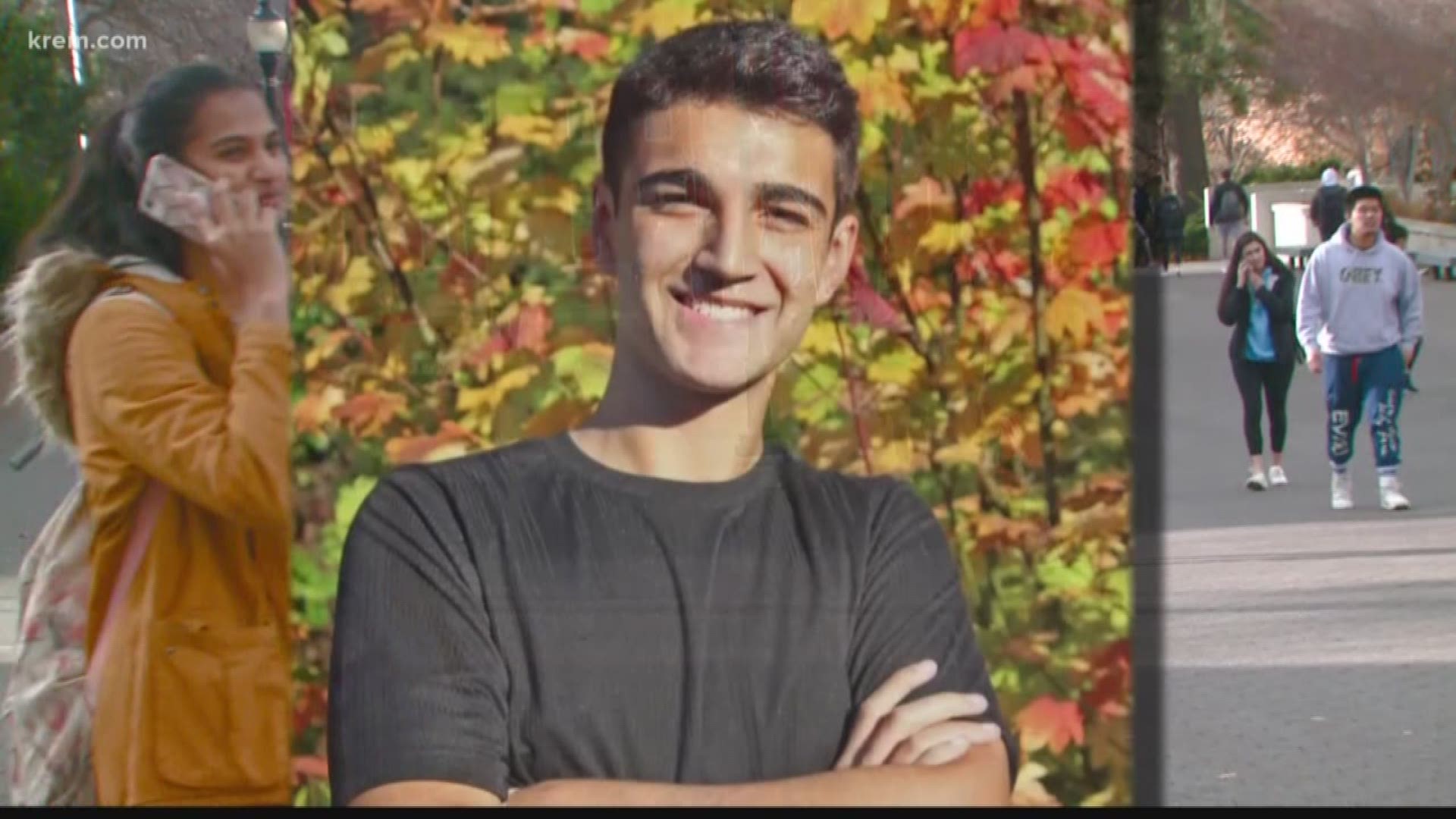PULLMAN, Wash. — The Pullman Police Department said on Friday that the possibility of hazing playing a role in the death of Washington State University fraternity member Sam Martinez is "back on the table."
Pullman Police Chief Gary Jenkins said they are investigating whether hazing played a role in the death of the 19-year-old Alpha Tau Omega fraternity member, after ruling it out right after his death.
Jenkins said interviews conducted since that announcement made them reconsider hazing.
"It was a result of interviewing people that were either present or observed the activity or event leading to Mr. Martinez's death," Jenkins said.
According to Jenkins, police hope to have their interviews and investigation done in three to four weeks, but the coroner's report could take months to complete, which is necessary for the investigation.
A Washington State University spokesperson said the school isn’t ruling out hazing as a factor in the death of a student at the university.
"Because they were students, obviously and they were a part of a registered recognized fraternity, we have our own investigation," said WSU Spokesperson Phil Weiler.
The university and local police department are conducting two separate investigations into the student's death.
The university has also temporarily stripped the fraternity of its status while the investigation is underway.
Hazing is a misdemeanor in Washington state.
Martinez was found unconscious and not breathing at the Alpha Tau Omega fraternity at 8:35 a.m. on Tuesday, Nov. 12, Pullman police said. Medics later determined that he was dead.
Pullman police said the first 911 call came in minutes before police arrived on scene. Whitman County Coroner Annie Pillers said Martinez died at 4:30 a.m. on Nov. 12. Police believe his death may have been alcohol-related, but the official cause and manner of death have not been determined.
Police previously told KREM 2 that they want to hold people accountable for Martinez’s death, but the they also don't want to scare off students from calling for help in the future.
Pullman Police Chief Gary Jenkins said it's somewhat of a balancing act. On one hand: Washington's good Samaritan law states that people can't face drug or alcohol possession charges if they're calling for medical help during an overdose. The law is designed to encourage people to get help and prevent deaths. The law doesn't address charges like providing alcohol to minors. In this case, police said they may pursue that.
Weiler said he doesn't believe the delay in reporting time was because students hesitated to call the police because Martinez was a minor.
"You're not going to be in trouble for reporting that information," Weiler said.
He said the school sent out a memo to students reminding them of the good Samaritan laws and the campus rules surrounding underage drinking and substance abuse. He said it's a reason the school teaches orientation classes on preventing alcohol abuse.

